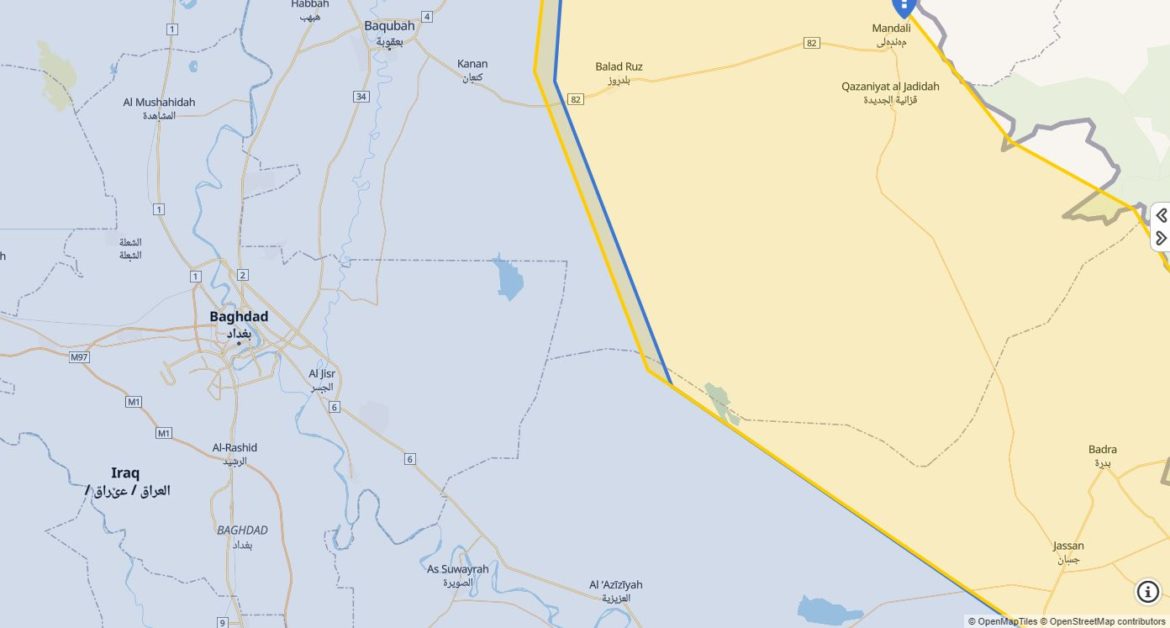1.3K
Kirkuk
Kurdistan Region Resume Oil Exports on Saturday
- On May 11, the Ministry of Natural Resources (MNR) of the Kurdistan Region of Iraq (KRG) announced that all procedures for resuming oil exports from Kurdistan have been completed. The MNR statement noted that on May 10, the State Organization for Marketing of Oil (SOMO) officially asked the Turkish government to resume oil exports through the Ceyhan pipeline. Iraqi Oil Minister Hayan Ghani confirmed that oil will resume on Saturday, May 13. The oil exports were paused on March 24 after the Arbitration court in Paris ruled in favor of Iraq against the independent export of the Kurdistan Region via Turkey. The ruling halted the exports of Kirkuk’s oil since the North Oil Company (NOC) uses Kurdistan’s pipeline for exports via Turkey.
Kakayi Kurdish Families Protest Demolition of Homes in Kirkuk
- On May 7, Kakayi Kurdish families living in the Asra and Mafqudin neighborhood of Kirkuk protested against the decision of the Kirkuk administration to demolish their homes. The families built their homes near the Khasa River after they were displaced from their villages by ISIS (Da’esh). The Kirkuk administration plans to demolish the houses and make way for a highway project without offering compensation. The protesters called on the Kirkuk administration to reconsider its decision and to provide them with compensation for their losses.
Mass Grave Discovered in Hawija District
- On May 9, a mass grave containing the bodies of five victims was discovered inside the Bagara military base in Hawija district. The security agencies reported that the remains and the graves date back to the time Da’esh rule over Hawija district from 2014 to 2017. Human rights activists suspect that the bodies are of the captured Peshmergas back in 2014.
Drug Enforcement Police Directorate Arrests Drug Dealing Band in Kirkuk
- On May 6, the Drug Enforcement Police Directorate (DEPD) in Kirkuk announced the arrest of a three-member drug dealing band. The raid occurred in the Baroutkhana neighborhood, and police wounded one gang member after a shootout. The other two gang members were arrested, and several kilograms of drugs, including hashish and addictive substances, were confiscated. Kirkuk has become a major route for drug trafficking, mainly coming from Iran and administered by militias.
Kirkuk Lawmaker Quits Taqadoum Coalition, Joins Azm Coalition
- On May 9, Sahira Abdullah Gharb, an Arab lawmaker from Kirkuk, announced her withdrawal from the Taqadoum Coalition led by Speaker Mohammed Halbusi and joined the Azm Coalition led by Khamis Khanjar. In a statement, Gharb thanked the leadership of the Taqadoum Coalition but said her decision was due to the “monopoly over institutions of Kirkuk” without having her express any “decisions of opinion.” Gharb had joined the same coalition as Kirkuk’s acting governor, Rakan al Jabouri, but had previously expressed a strong position against his work on several occasions.
Mandali
Residents of Mandali District Protest Appointment of Outsider as Mayor
- On May 6, residents of Mandali district in Diyala province demonstrated against the appointment of a mayor who the first Deputy Speaker of the Iraqi Parliament, Mohsen Mandalawi, recommended. The mayor is a Kurd from Baghdad, but the protesters demanded that any appointed mayor should be from the district. The protesters chanted, “We want a mayor that lives among us.” The Ba’ath regime had changed the status of Mandali from a district to a sub-district as part of its Arabization policy. Recently, the Iraqi government redistricted Mandali and appointed a mayor.
Shingal (Sinjar)
Human Rights Watch Criticizes Iraqi Government for Failing to Compensate Yazidis
- The Human Rights Watch (HRW) has criticized the Iraqi government for “failing to compensate thousands of Yazidis” for the property damages they suffered during Da’esh attacks on Shingal in 2014. The HRW noted that the Yazidi victims are “entitled under Iraqi law to compensation for the destruction and damage to their property” by Da’esh and the Iraqi and US-led coalition forces. The HRW called on the Iraqi government to identify “the bottlenecks in the compensation process” and to ensure that all Yazidi victims receive the compensation. The HRW’s criticism comes as thousands of Yazidis remain displaced from their homes in Shingal. The Yazidi community was devastated by the ISIS attack, which saw thousands of Yazidis killed, enslaved, or forced to flee their homes. On May 9, the local administration found a new mass grave during the excavation process for building a school. The remains belong to the family of Saad Ahmad Araji, director of the Shiite endowment in the district.

